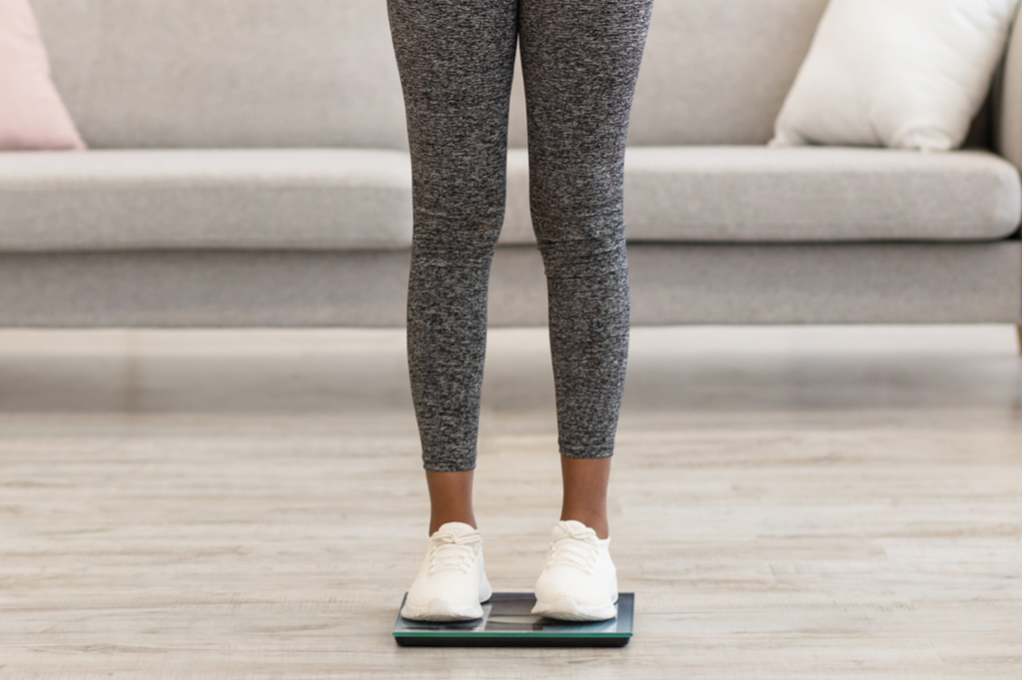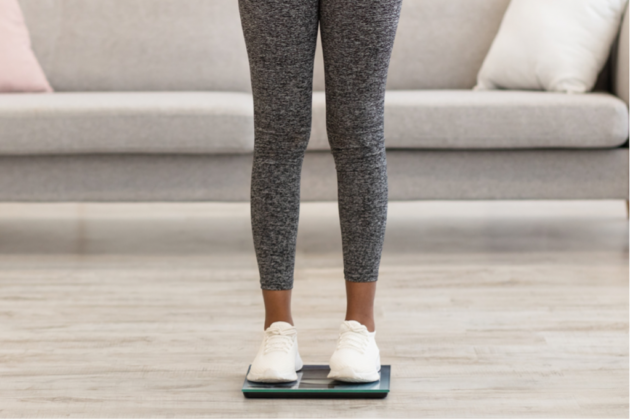Replenishing Your Body After Childbirth
So you just had a baby. Congratulations!!
While pregnant, you nested, went to all of your doctors appointments, read all the books and blogs, and received daily updates from your apps. You fought through 9 months of symptoms then put your body through the marathon of labor and delivery …and now you might feel like you’re undernourished after the transformation your body just went through you’re kind of on your own with this brand new little person.
The first three months after birth, sometimes referred to as “the fourth trimester”, is an incredibly vulnerable time in a woman’s life (emotionally and physically). Here is a little insight into the physical and hormonal changes and how to nourish your body that occur during this time.
You might feel very protective over your baby
Oxytocin: Immediately after birth the hormone “oxytocin” rushes through the body to promote feelings of bonding towards your infant. Along with the feelings of “you are my everything” oxytocin also activates momma bear mode, encouraging protective feelings that can lead to uneasiness and anxiety.
Your estrogen levels could lead to the baby blues
Estrogen Dominance: The biggest hormonal shift that occurs postpartum is estrogen dominance. During pregnancy, the placenta produces progesterone at levels much higher than it usually does during a typical cycle and for an extended period of time. Of course, when the baby is delivered so is the placenta resulting in an immediate progesterone-free fall. While this is happening, estrogen levels remain high leading to symptoms such as severe menstrual cramps, irregular and heavy periods, premenstrual fluid retention, and weight gain or mood-related symptoms such as anxiety, panic attacks, mood swings, and feeling low or depression. These opposing forces are a major contributing factor to the emotional backlash referred to as “baby blues” and can catalyze postpartum depression.
Your hair loss could be resulting from your thyroid levels
Hypothyroid: Estrogen dominance causes the liver to produce increasing levels of thyroid-binding globulin. As the name states, it binds to thyroid hormones. Once thyroid hormone is bound in the blood, it is no longer free to enter the cells to be used as its intended function which leads to impaired thyroid function postpartum. Symptoms include brain fog, hair loss, fatigue, headaches, and constipation.
Supporting a brand new life and integrating your child into the life you’ve created is a monumental challenge. This is why it is essential that you take measures to rest, rebalance hormones, and allow your body and mind to recover. Here are some steps you can take.
- Get sleep! Sure, a newborn doesn’t always make this easy but rest is necessary for the repair of tissues, easing inflammation, and managing mood. Lack of rest can disrupt all the body’s systems from immunity to sex hormones. Sleep when the baby sleeps. Go to bed as early as possible. Avoid streaming or scrolling traps that might keep you awake.
- Catch up on nourishment. During the last stages of pregnancy, it can be difficult to fill your belly when your baby is at her biggest. Also labor and delivery are like a marathon of energy expenditure. It’s important for healing and breastfeeding to eat nourishing foods postpartum as well as utilize a multivitamin to cover your bases.
- Reduce inflammation. Much of what leads to feeling drained postpartum has a lot to do with inflammation. Adding antioxidants such as ashwagandha, turmeric, and cranberry extract can help your body banish inflammation.
- Add adaptogens. You need all the help you can get right now! Adaptogens help the body counter the effects of stress and avoid burnout. Mushrooms such as cordyceps and chaga, and maca root are plant-based solutions that keep you going without draining your resources.
- Getting your cycles back. Few things can make you feel more like “you before baby” than predictable, normal menstruation. Chasteberry has been shown to stimulate regular ovulation and minimize the symptoms of PMS.
- Healthy gut, happy mom. A healthy gut is associated with reduced inflammation, a stronger immune system, increased serotonin, better nutrient absorption, and fewer tummy troubles. Probiotics are a terrific aid to increase better for your bacteria for gut balance.
Add this on top of the physical and emotional toll and you might have a recipe for feeling really overwhelmed and lost. It’s important at this time (and really any time) to try to keep tabs on your feelings and thoughts, communicate them to your support system and medical team, and ask for help to lighten your load. New mom, you’re doing great!
Knowell is a comprehensive nutritional supplement designed to support hormone balance. Made by a nutritionist and mom, Knowell is a blend of plant extracts, vitamins, minerals, probiotics, and enzymes that promote optimal hormone function to lead the path to regulated cycles, clearer skin, better mood, and reduced symptoms of PMS. You take care of everyone, Mom. Let Knowell take care of you.
So you just had a baby. Congratulations!!
While pregnant, you nested, went to all of your doctors appointments, read all the books and blogs, and received daily updates from your apps. You fought through 9 months of symptoms then put your body through the marathon of labor and delivery …and now you might feel like you’re undernourished after the transformation your body just went through you’re kind of on your own with this brand new little person.
The first three months after birth, sometimes referred to as “the fourth trimester”, is an incredibly vulnerable time in a woman’s life (emotionally and physically). Here is a little insight into the physical and hormonal changes and how to nourish your body that occur during this time.
You might feel very protective over your baby
Oxytocin: Immediately after birth the hormone “oxytocin” rushes through the body to promote feelings of bonding towards your infant. Along with the feelings of “you are my everything” oxytocin also activates momma bear mode, encouraging protective feelings that can lead to uneasiness and anxiety.
Your estrogen levels could lead to the baby blues
Estrogen Dominance: The biggest hormonal shift that occurs postpartum is estrogen dominance. During pregnancy, the placenta produces progesterone at levels much higher than it usually does during a typical cycle and for an extended period of time. Of course, when the baby is delivered so is the placenta resulting in an immediate progesterone-free fall. While this is happening, estrogen levels remain high leading to symptoms such as severe menstrual cramps, irregular and heavy periods, premenstrual fluid retention, and weight gain or mood-related symptoms such as anxiety, panic attacks, mood swings, and feeling low or depression. These opposing forces are a major contributing factor to the emotional backlash referred to as “baby blues” and can catalyze postpartum depression.
Your hair loss could be resulting from your thyroid levels
Hypothyroid: Estrogen dominance causes the liver to produce increasing levels of thyroid-binding globulin. As the name states, it binds to thyroid hormones. Once thyroid hormone is bound in the blood, it is no longer free to enter the cells to be used as its intended function which leads to impaired thyroid function postpartum. Symptoms include brain fog, hair loss, fatigue, headaches, and constipation.
Supporting a brand new life and integrating your child into the life you’ve created is a monumental challenge. This is why it is essential that you take measures to rest, rebalance hormones, and allow your body and mind to recover. Here are some steps you can take.
- Get sleep! Sure, a newborn doesn’t always make this easy but rest is necessary for the repair of tissues, easing inflammation, and managing mood. Lack of rest can disrupt all the body’s systems from immunity to sex hormones. Sleep when the baby sleeps. Go to bed as early as possible. Avoid streaming or scrolling traps that might keep you awake.
- Catch up on nourishment. During the last stages of pregnancy, it can be difficult to fill your belly when your baby is at her biggest. Also labor and delivery are like a marathon of energy expenditure. It’s important for healing and breastfeeding to eat nourishing foods postpartum as well as utilize a multivitamin to cover your bases.
- Reduce inflammation. Much of what leads to feeling drained postpartum has a lot to do with inflammation. Adding antioxidants such as ashwagandha, turmeric, and cranberry extract can help your body banish inflammation.
- Add adaptogens. You need all the help you can get right now! Adaptogens help the body counter the effects of stress and avoid burnout. Mushrooms such as cordyceps and chaga, and maca root are plant-based solutions that keep you going without draining your resources.
- Getting your cycles back. Few things can make you feel more like “you before baby” than predictable, normal menstruation. Chasteberry has been shown to stimulate regular ovulation and minimize the symptoms of PMS.
- Healthy gut, happy mom. A healthy gut is associated with reduced inflammation, a stronger immune system, increased serotonin, better nutrient absorption, and fewer tummy troubles. Probiotics are a terrific aid to increase better for your bacteria for gut balance.
Add this on top of the physical and emotional toll and you might have a recipe for feeling really overwhelmed and lost. It’s important at this time (and really any time) to try to keep tabs on your feelings and thoughts, communicate them to your support system and medical team, and ask for help to lighten your load. New mom, you’re doing great!
Knowell is a comprehensive nutritional supplement designed to support hormone balance. Made by a nutritionist and mom, Knowell is a blend of plant extracts, vitamins, minerals, probiotics, and enzymes that promote optimal hormone function to lead the path to regulated cycles, clearer skin, better mood, and reduced symptoms of PMS. You take care of everyone, Mom. Let Knowell take care of you.










